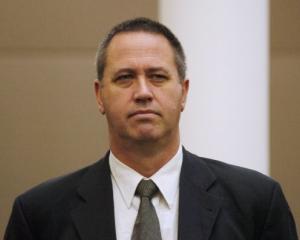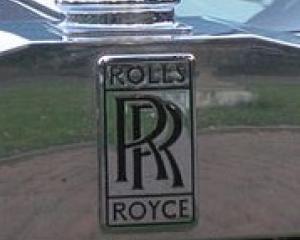The men were refused bail and were remanded in custody pending sentence, probably in early February.
Crown counsel Robin Bates said bail was "strongly opposed" in the case of Swann, who was now regarded as a flight risk.
In the case of each man, the offending was very serious and the amount of public funds involved "very significant".
In an affidavit handed to the court, board CEO Brian Rousseau expressed concerns about the difficulties experienced in locating, identifying and securing assets Swann had acknowledged only during the trial as having been bought with health board money.
Counsel Billy Boyd had sought bail for both men for family reasons and, in Swann's case, because he believed he would be the best person to assist in the sale of his boats and various other assets which had been seized.
And Mr Boyd said Harford had already settled his part in a civil action brought by the board against both men and other parties.
The verdict in the three-week trial came at 10.30 last night, exactly 12 hours after the jurors began their deliberations.
Neither man showed any emotion when the foreman announced the finding of "guilty" on each of the six charges, three against each accused, and after the judge thanked the jurors for the courteous, diligent and patient way they had dealt with the case, he excused them from further jury service for five years.
Swann (47) and Harford (48) had both denied dishonestly and with intent to defraud, obtaining almost $17 million from the board for IT-related services the Crown said were never provided.
Between August 2000 and August 2006, the pair sent 198 invoices from Harford-owned company Sonnford Solutions, and its predecessor Harford Sonntag and Associates, and received payments totalling $16,902,145.27.
Harford retained 10% and forwarded the remaining 90% to Swann-linked companies or entities.
The defence claimed the charges were for a risk mitigation insurance scheme for the Dunedin hospital's main servers, that neither man acted dishonestly, believing they were entitled to do what they did and the insurance arrangement, which the Crown described as "Clayton's" maintenance cover was "good value for money".
In his summing up, Justice Stevens told the jurors the real issue they should focus on was what was in the minds of the accused at the time of the alleged offending.
Did they have an intent to defraud, to act dishonestly, when they created the 198 invoices (in Swann's case) and filled in the details (in Harford's case), seeking payments totalling $16.9 million from Healthcare Otago, later the Otago District Health Board?
"Focus on whether the accused had an honest belief and whether Crown has excluded that," Justice Stevens said.
The charges against Harford had to be considered separately. They contained the same elements as the charges against Swann, but the roles of the two men were different.
Harford was not employed by the district health board so his charges had to be looked at in the factual context as it applied to him, his role in establishing Sonnfords, the invoices being mailed to him by Swann, converted by him (Harford) into a form suitable to be sent for payment, using the computer and templates, then forwarding them to Swann who presented them back for payment.
In each case, the jurors should focus on what was in Harford's mind when he did what he did.
The Crown relied on a great deal of circumstantial evidence in the case, particularly on the question of intent and the jurors were entitled to draw inferences from evidence they found to be reliable.
There was nothing magical about the process of drawing inferences, Justice Stevens said.
But he urged them not to get lost in the detail of the evidence but to focus on "the big picture".



